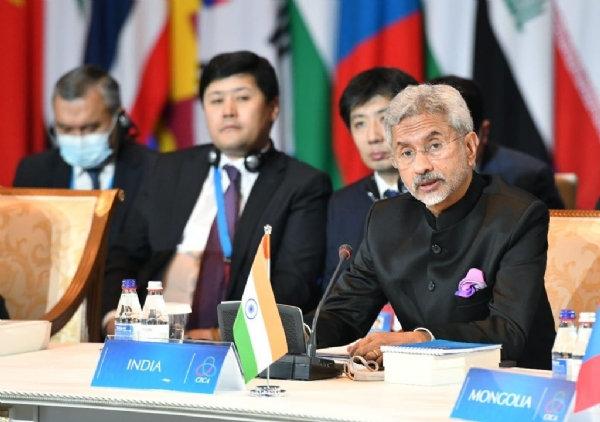‘It will come back to haunt those who nurture it’ : India's veiled message to Pakistan over terrorism
13 Oct 2021 10:55:26
Nur-Sultan, October 13: Launching the thinly veiled attack on Pakistan for supporting the cross border terrorism, India said, forces such as extremism, radicalisation, and violence “come back to haunt those who nurture them”.

While addressing the 6th meeting of the Foreign Ministers of the Conference of Interaction and Confidence Building Measures in Asia (CICA) External Affairs Minister S Jaishankar said that cross-border terrorism is not statecraft but "simply'' another form of the menac.
Pointing out that terrorism is the “biggest enemy” of the common goal of peace and development for members of CICA, he further appealed to the international community to unite against this evil, as seriously as it does on issues like climate change and pandemics.
“If peace and development is our common goal, the biggest enemy we must overcome is terrorism. In this day and age, we cannot countenance its use by one state against another. Cross-border terrorism is not statecraft; it is simply another form of terrorism,'' he told the gathering.
''Any calculation that extremism, radicalization, violence, and bigotry can be used to advance interests is a very short-sighted one. Such forces will come back to haunt those who nurture them. Lack of stability will also undermine our collective efforts to get Covid under control. The situation in Afghanistan is, therefore, of grave concern," he said,
Additionally, he also targets China’s Belt and Road Initiative (BRI) saying respect for sovereignty and territorial integrity of nations must be at the heart of all connectivity projects.
Also Read |
Islamabad is biggest perpetrator and supporter of terrorism : India slams Pakistan at UNGA
''As we build these modern arteries of commerce, it is essential that the most basic principles of international relations are observed. It is also important that connectivity building is a participative and consensual exercise, based on financial viability and local ownership. They must not serve other agendas,'' he said.
.
.